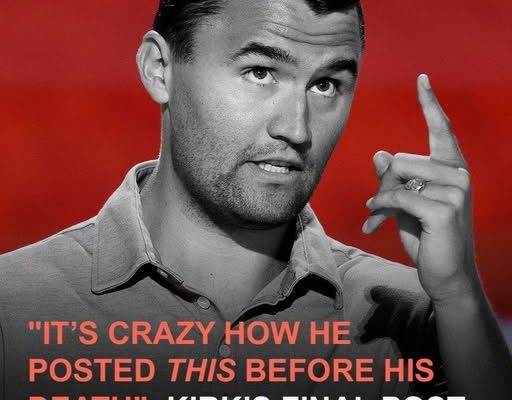Charlie Kirk’s final hours have taken on a haunting quality in the wake of his assassination. Just before his death, the 31-year-old activist posted a cryptic message on Instagram — one that many now see as chilling in its timing.
The post featured a surveillance-style photo of a woman sitting alone on a subway. She appeared visibly frightened, looking up at a shadowy figure standing over her. According to Kirk’s followers, the woman had later been murdered by that same figure. His caption was brief but ominous: “America will never be the same.” At the time, it seemed like another provocative commentary. Now, it reads like a grim foreshadowing.
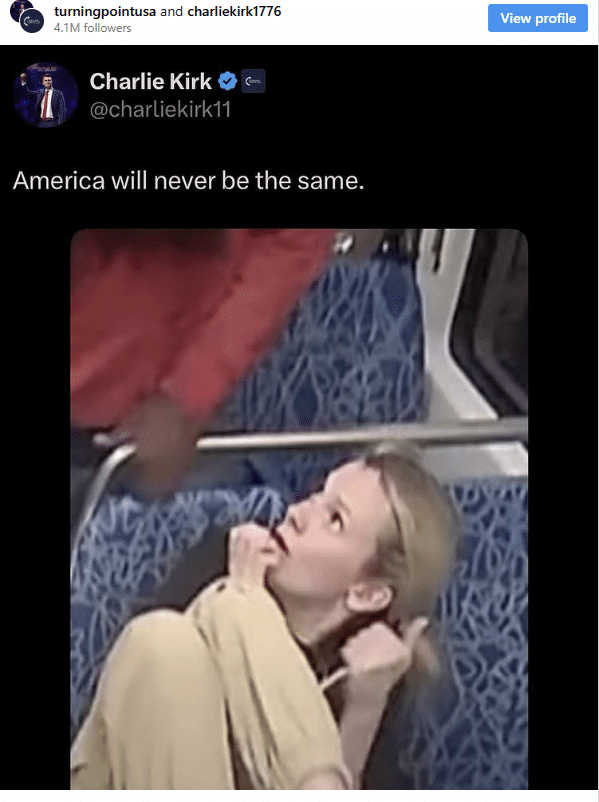
Kirk’s Instagram Story added another layer to the mystery. In one clip, filmed from the inside of his car, he spoke about the tragic murder of Iryna Zarutska on a Charlotte light rail in August 2025, noting that her killer had a long criminal record. He appeared to be linking her story to the surveillance image he posted. In another video, dressed in a suit with a microphone in hand, Kirk addressed an audience, passionately speaking about “what it means to be a nation.” Within hours of sharing those words, he was shot dead while doing exactly that — addressing a crowd.
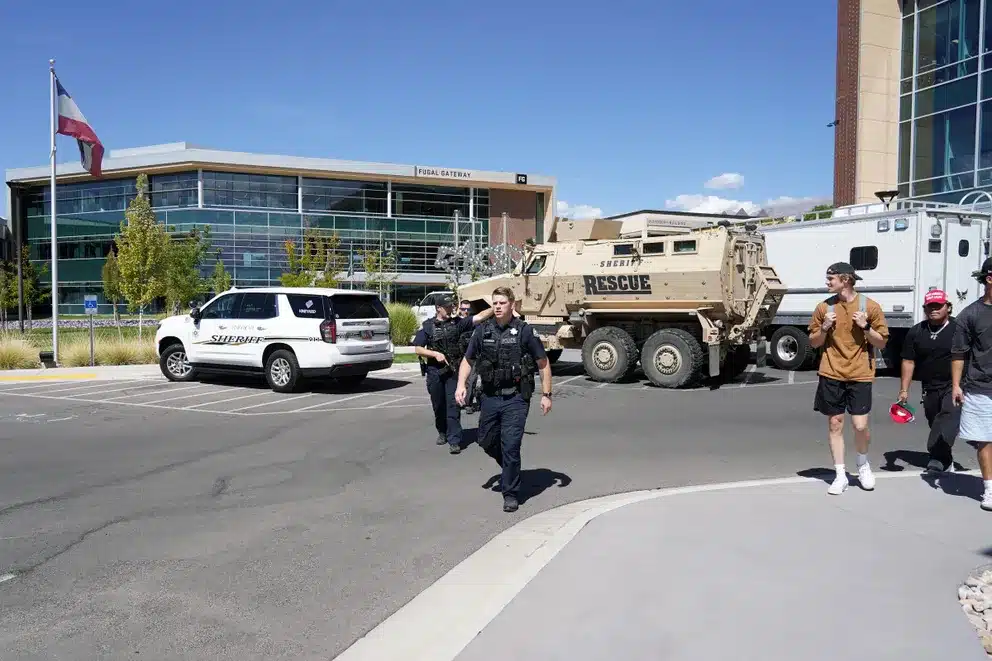
His followers flooded the comment section of his last post. “It’s crazy how he posted this before his death,” one wrote. Another asked in disbelief, “First her, now you? Is this real?” Others were more heartbroken, noting the eerie symmetry: “Less than 24 hours ago he was talking about someone’s murder, not knowing he would be the next.”
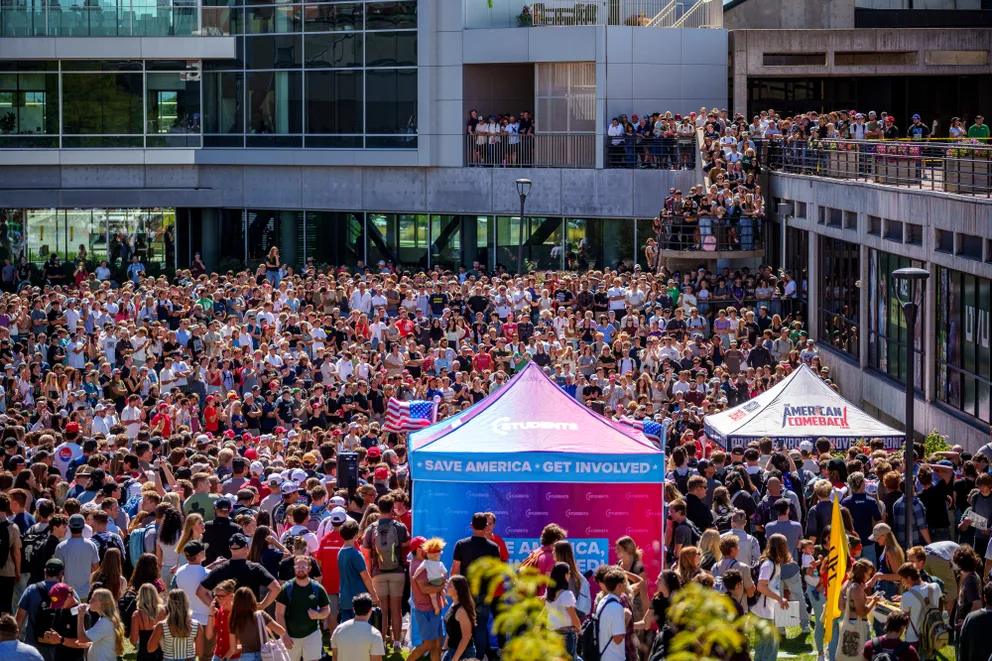
The violence struck during what should have been an ordinary campus appearance. Kirk was midway through his “American Comeback Tour” stop at Utah Valley University when a single bullet tore through his neck. Witnesses described hearing a crack from a nearby rooftop, followed by chaos as security rushed him away and the crowd dropped to the ground in panic. For a brief moment, some thought it was part of the performance. Then they saw the blood.
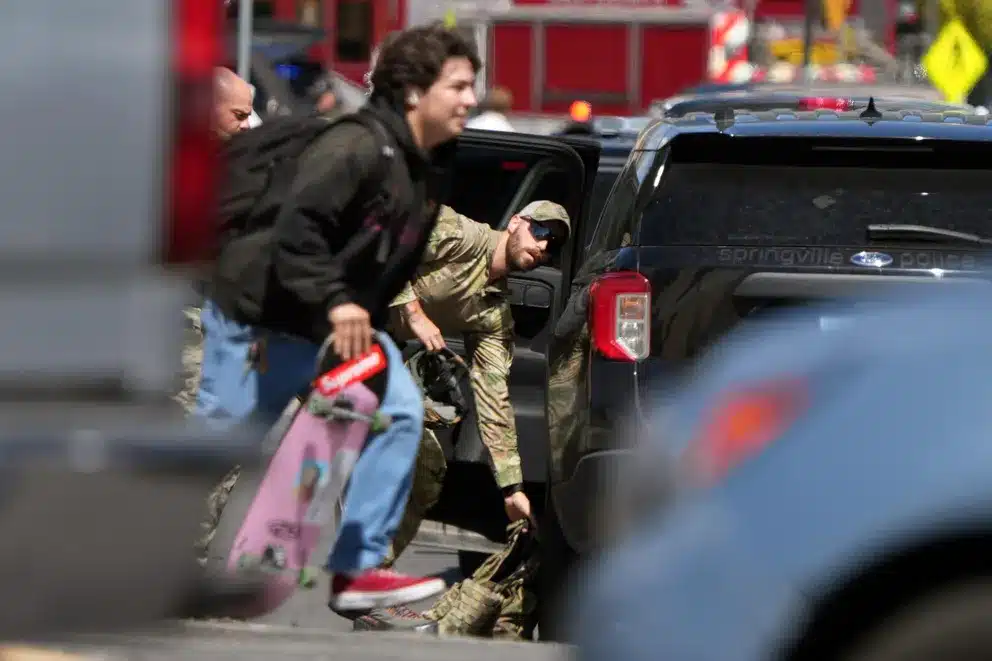

He was taken to Timpanogos Regional Hospital, where friends and supporters gathered outside praying for a miracle. Within 90 minutes, the prayers turned into mourning. Turning Point USA released a statement confirming the worst: Charlie Kirk had died.
The FBI quickly launched an investigation, but early findings suggested the shooter was highly skilled. Analysts said the precision of the single shot pointed to someone with prior firearms training. The rifle used — a high-powered, bolt-action weapon — was later recovered in a wooded area. Authorities believe the assassin planned carefully, intending to fire once and leave little evidence behind.

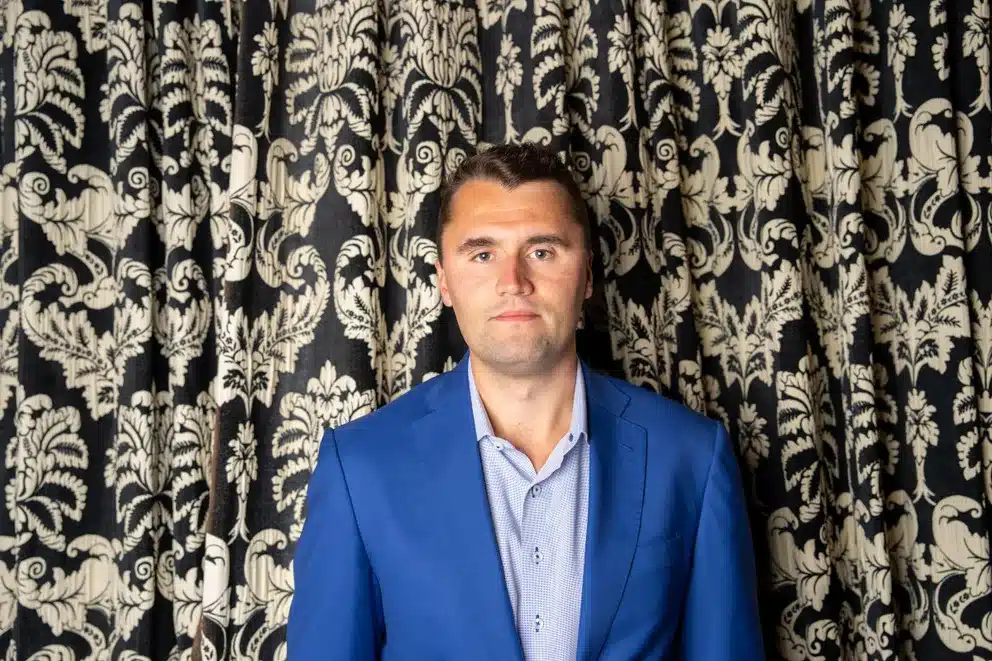
The tragedy instantly drew comparisons to the Minneapolis church shooting just weeks earlier, which had claimed the lives of two children. Both incidents reignited debates about violence in America and the fragile sense of safety in schools, churches, and campuses.
Eyewitnesses from Utah Valley described the surreal horror. One man recalled instinctively shielding his wife as people screamed and scrambled. Another said he grabbed his phone and recorded as Kirk’s bodyguards carried him away, unsure whether the gunfire would continue.
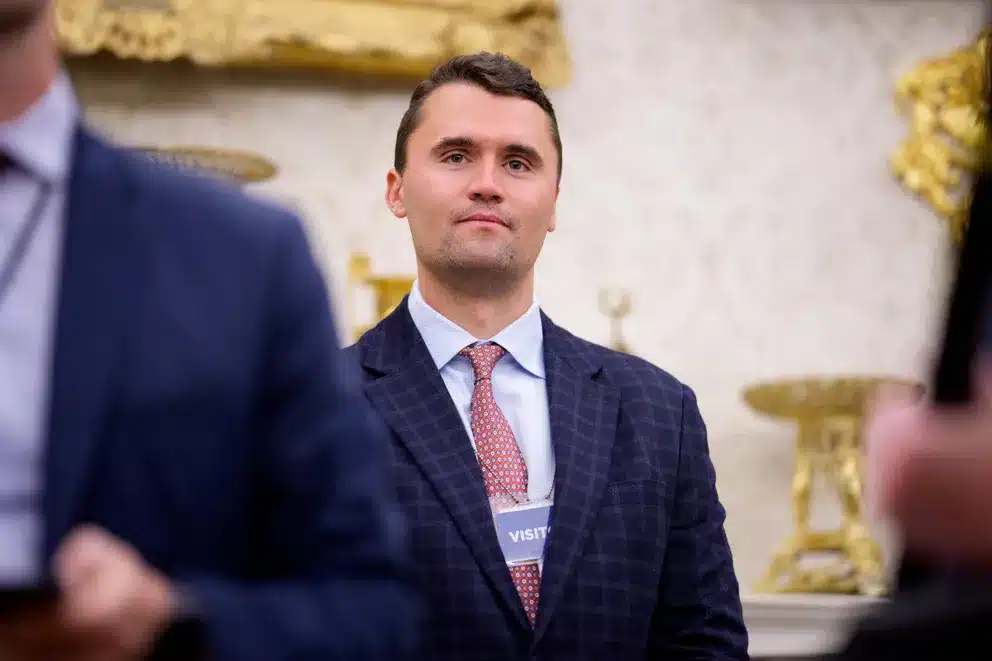
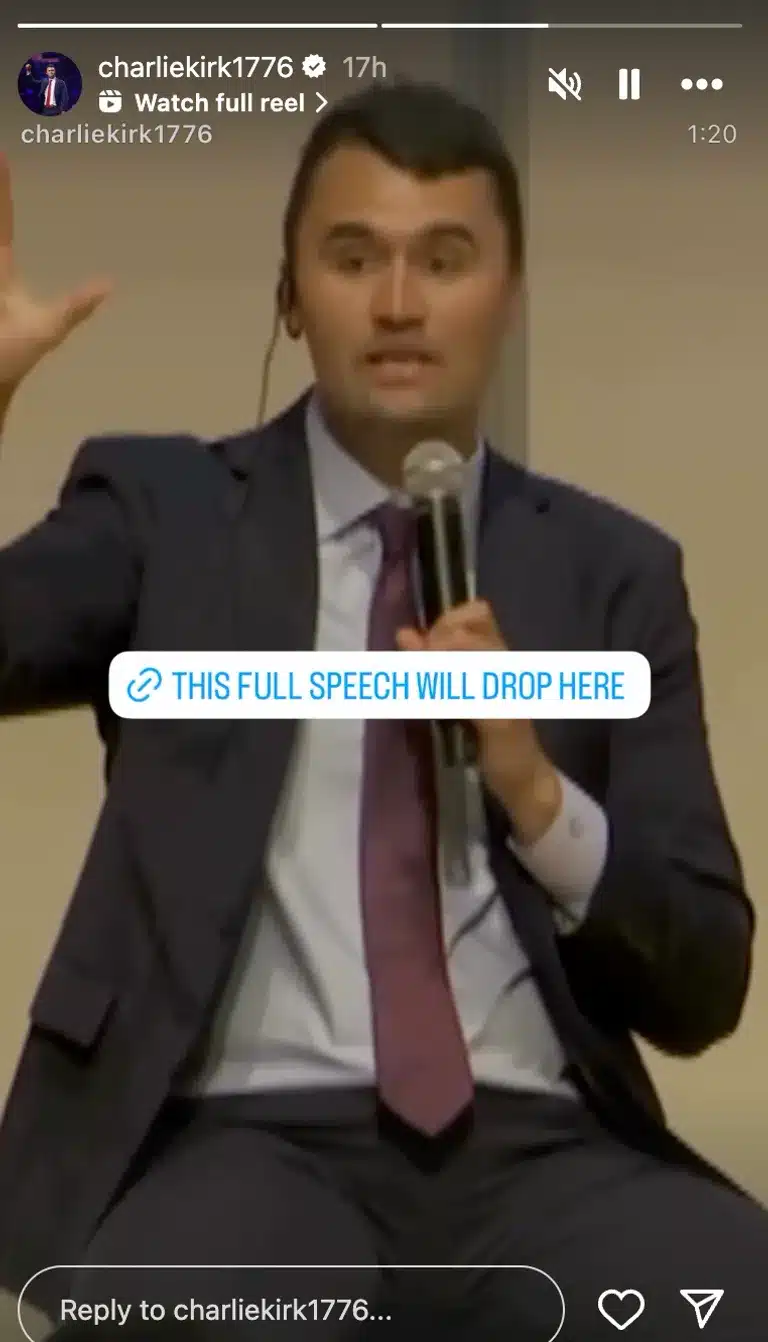
By evening, President Donald Trump addressed the nation in sorrow and anger, calling Kirk’s death a “heinous assassination” and a “dark moment in American history.” He declared Kirk a “martyr,” ordered all U.S. flags flown at half-staff, and extended condolences to Erika Kirk and the couple’s two young children. Vice President JD Vance echoed the sentiment, asking Americans to pray for the family.
In the days ahead, investigators will search for the shooter, followers will continue parsing Kirk’s cryptic final posts, and his family will face the unimaginable task of navigating life without him. His Instagram feed — filled with images of faith, politics, and family — now feels like a digital time capsule of a man who lived loudly, argued fiercely, and left this world in the same whirlwind of controversy and conviction that defined his career.
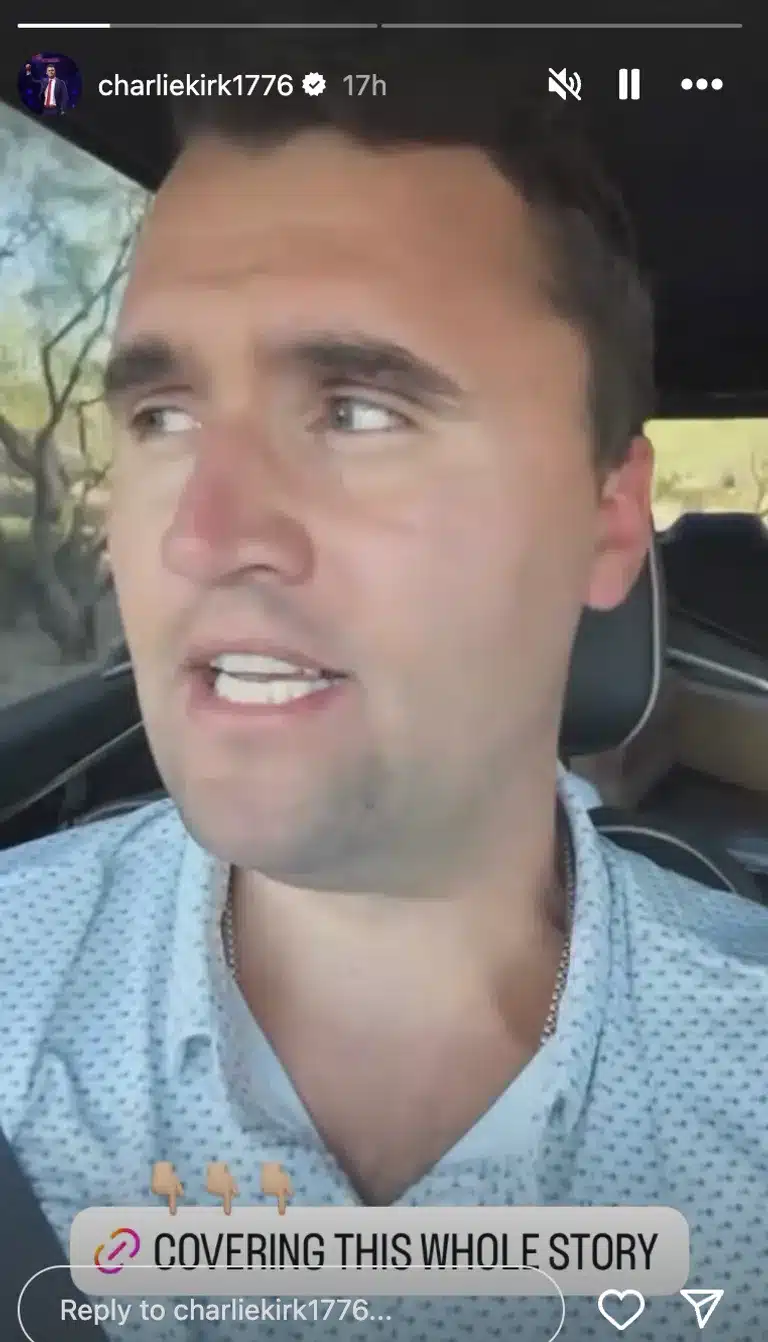
For his supporters, that last caption, “America will never be the same,” has become both a warning and a prophecy.
